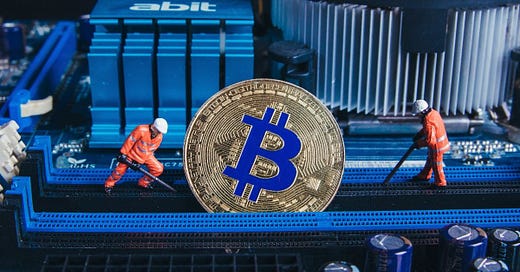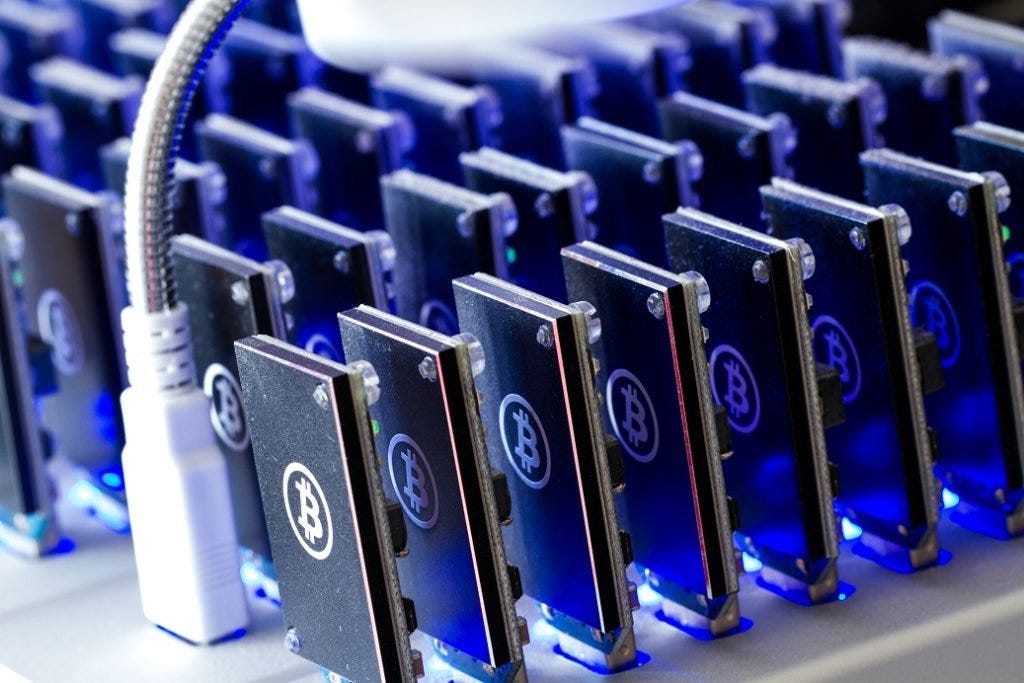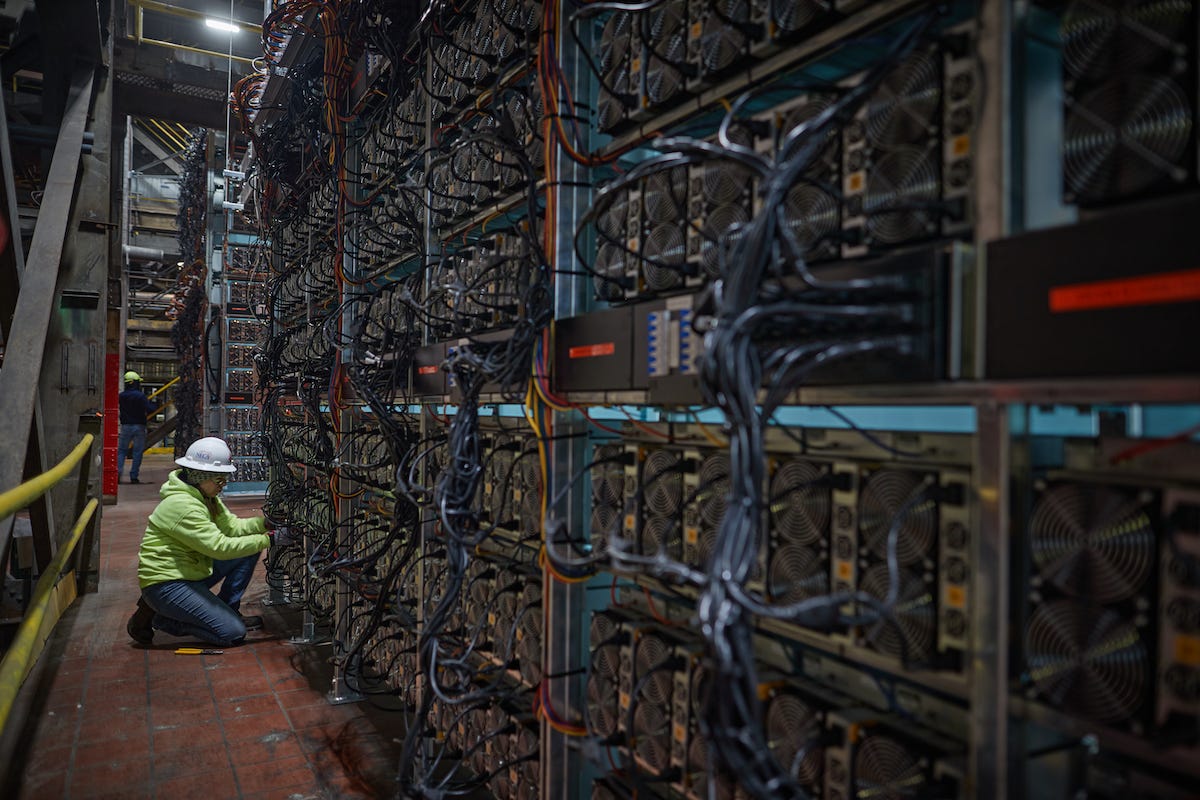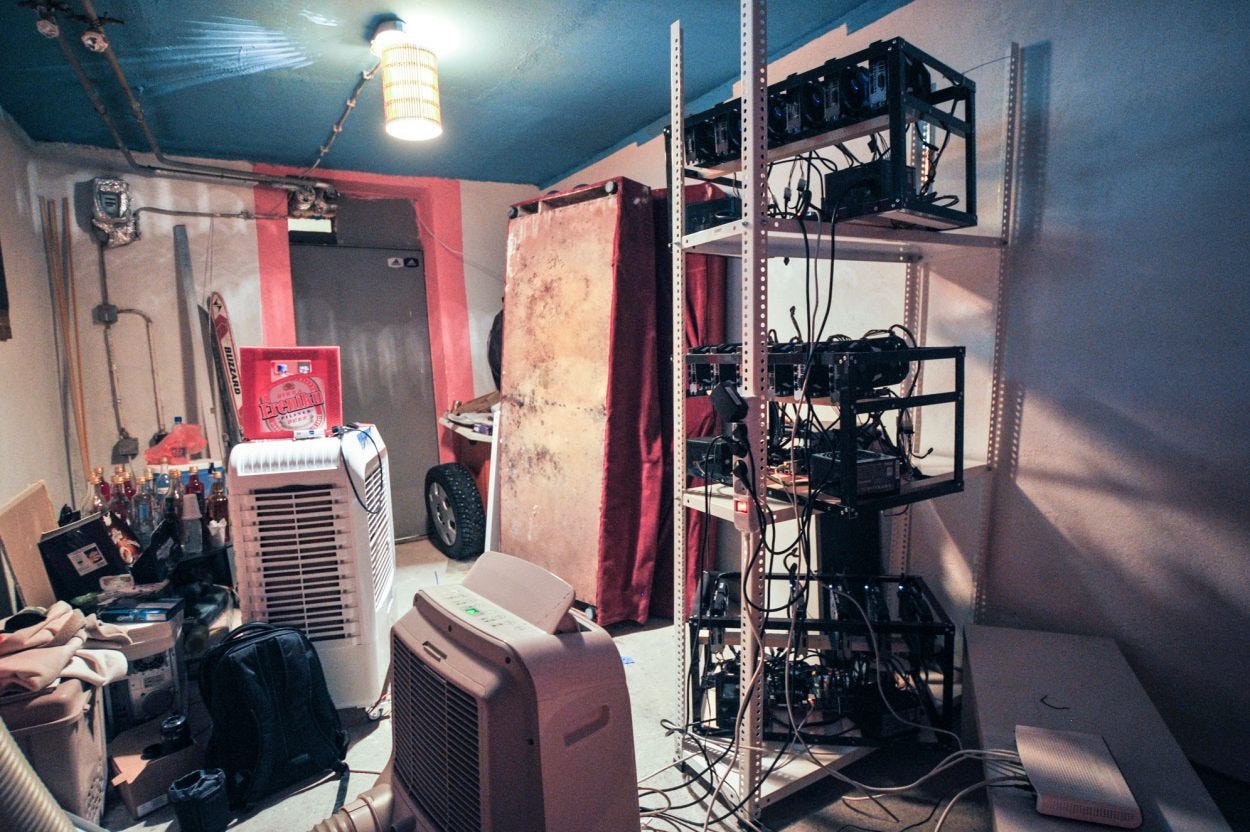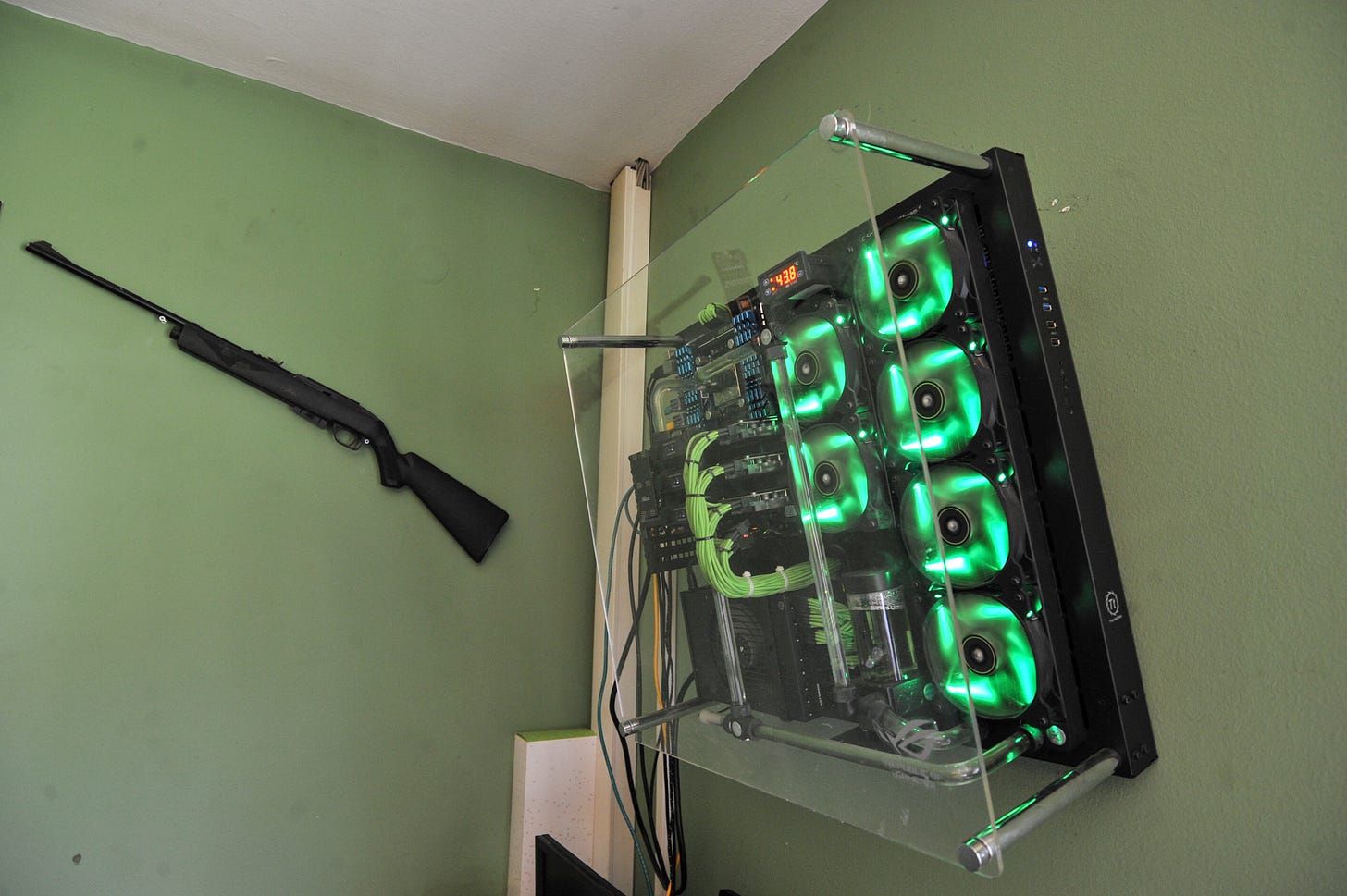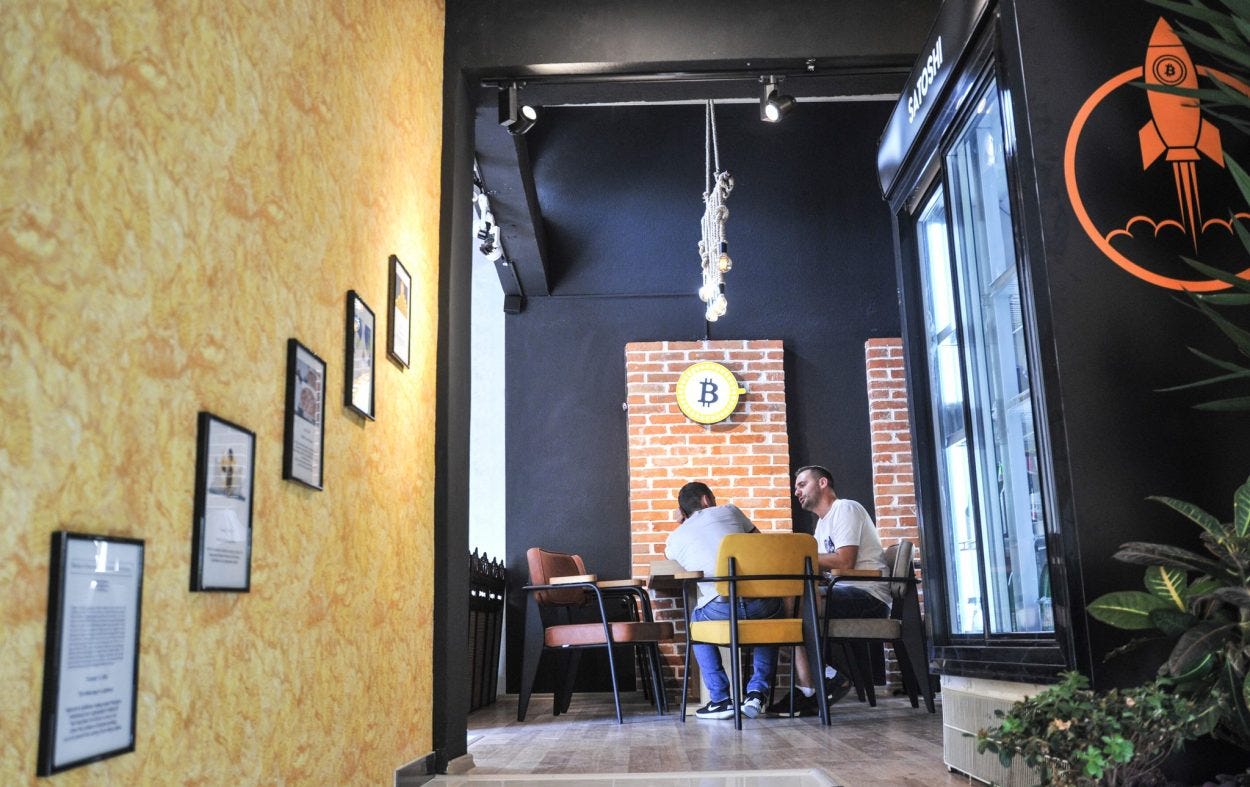XLVIII. Bitcoin miners
Kosovo has become a cryptocurrency mining paradise, thanks to the low cost of electricity. In particular, in the north of the country, where bills have not been paid for 20 years
Hi,
welcome back to BarBalkans, the Italian newsletter whose aim is to give a voice to the Western Balkans’ stories, on the 30th anniversary of the Yugoslav Wars.
These are hectic days for cryptocurrencies, after the Bank of China stated that they cannot be used as a form of payment.
So the collapse began: the Bitcoin dropped by 25% (below 40 thousand dollars for the first time since early February) and Ethereum is in free fall.
But how much do we know about cryptocurrencies? Who creates and manages them? Is there a digital Mint or is it an IT Far West?
But above all, where are they made? Is it possible that, once again, the Western Balkans are involved?
Well, we have several irons in the fire. We can start.
Mining and miners
But first of all, let’s stop for a moment to take stock of the cryptocurrency lexicon, thanks to The Economist’s guide.
Bitcoin is a cryptocurrency invented in 2008 by Satoshi Nakamoto (pseudonym of a person or group of people, we don’t know for sure).
Bitcoins are generated by computers networked, which perform complex mathematical operations: this procedure is known as mining.
Hence, people working to generate Bitcoins are called miners.
The total number of Bitcoins that can be generated is limited to around 21 million.
Bitcoins - or fractions - can be bought or exchanged with traditional currencies and can be transferred through the Internet from one user to another.
All transactions are recorded in a collective digital ledger, with a system called blockchain. It is used to annotate and validate virtual currency exchanges among users.
In practice, miners’ computers perform complex calculations to validate cryptocurrency transactions.
In return, miners receive a commission for every transaction in the block they have validated.
Moreover, they receive a reward for producing single blocks of the blockchain.
But there is a problem. The super-computers used for mining consume a dizzying amount of electricity.
It is estimated that the worldwide consume is equal to the annual consumption of Austria (about 65 million megawatt hours).
This is why, like new gold diggers, digital miners choose the countries where electricity costs as little as possible. The less they spend, the more profitable is the business.
One of the most coveted places is Paraguay, where the cost of electricity is 4 US cents per kilowatt hour (0.33 euro cents). Alexander Busch for the Neue Zürcher Zeitung wrote an incredible report about it.
Just to make some comparisons, in the UK the average cost is 19 pennies per kilowatt hour (22 euro cents).
But also some European countries are carving out a place in the Bitcoin miners’ paradise.
One for all, Kosovo.
In particular, northern Kosovo.
Cyber paradise
As you can imagine, what makes Kosovo a Bitcoin miners’ paradise is the fact that electricity costs little or nothing, about 7 US cents per kilowatt hour (5 euro cents).
Once made the investment to purchase the graphics processing units (GPUs) connected in a rig (a computer that uses the GPUs as mining accelerators), profits can be calculated.
An estimated rig of 100 GPUs can guarantee earnings up to 2,700 euros per month, based on the current exchange value of the Bitcoin.
Considering a monthly electricity bill around 900 euros, the profit margin is 1,800 euros.
In Kosovo, the average salary is 400 euros per month. Almost five times less.
This is why, in one of the poorest European countries, mining is seen by more and more citizens as a source of income to bet on.
Half of Kosovo’s 1.8 million inhabitants is less than 25 years old. Half a million is unemployed.
There is a lack of prospects for the future. Almost half of the adult population wants to move abroad, to escape corruption and clientelism.
In a widespread underground economy, investing in mining is one of the ways for laundering money.
Because in Kosovo even apartments can be bought in Bitcoins.
There is a mix of difficult economic conditions, criminal financial capitals to be laundered and low cost electricity.
Low, or even none at all.
Millionaire tax evasion
The hum of computers has now become a constant sound in northern Kosovo, where the Serbian population is impervious to integration with the rest of the country (predominantly belonging to the Albanian ethnicity).
The undercover press sources of the Balkan Investigative Reporting Network report that one out of two/three houses hosts computers for Bitcoin mining.
Miners do not keep all computers in one place, but they have established a pseudo-business model.
Ordinary citizens rent their homes to allow Bitcoin miners to work undercover. Depending on the number of computers kept in custody, the price varies between 500 and 1,000 euros per month (each computer, between 30 and 50 euros per month).
Suhodoll, Gushavc, Zubin Potok, Zvecan, Vinarc, Mitrovica and Leposavic. Not only urban centers, but also the most remote villages have become real hubs for the Bitcoin mining.
The reason is very simple. Here, electricity is free.
And this means that all income is net (excluding the house lease).
Taking advantage of the post-war limbo in Kosovo (and “legitimized” by the unilateral declaration of independence from Serbia in 2008), inhabitants of the North have not paid their bills for more than 20 years.
Also due to the explosion of Bitcoin mining, it is estimated that these municipalities consume energy for a value of around 12 million euros every year.
In the State coffers, 40 million euros are missing, just for the last 3 years.
The authorities have always turned a blind eye and until 2017 the citizens of the rest of the country were those covering the deficit, with a 3.5% increase in the electricity bill.
Since the practice was defined illegal by the judicial system, new solutions have been sought.
The new government of Prime Minister Albin Kurti has taken 6 months to find a lasting solution, while the transmission system operator company will have to cover unpaid bills.
[If you want to know more about the new Prime Minister and the Serbia-Kosovo relationship, here is the 35th episode, “Eternal sunset of the spotless countries”]
However, despite the latest alarming news for miners, Bitcoin does not appear to be experiencing any economic crisis in Kosovo.
With those who pay little and those who do not pay at all for electricity, business is still booming.
The risk is that the bubble will also burst in the new miners’ paradise, with unpredictable and menacing socio-economic consequences.
Pit stop. Sittin’ at the BarBalkans
We have reached the end of this piece of road.
In this almost surreal atmosphere, among super-computers and cryptocurrencies, even our stop at our bar, the BarBalkans, has a more digital flavor.
As we are in Kosovo, we have to stop in a bar in Pristina with a peculiar name, which we have already met along the way.
Satoshi, like the inventor of Bitcoin.
The bar was opened - and named in honor of the guru - by Milot Mehmeti, miner and former founder of Cryptex, a Kosovar company for mining and exchange of cryptocurrencies.
Satoshi is the first physical economic activity that accept Bitcoins in the country.
Since its opening in May 2019, customers have the possibility to pay for a coffee or a beer with the virtual currency.
Otherwise, they can deposit and exchange cash with Bitcoins, through a dedicated ATM.
The Satoshi bar is a cozy place with a small patio. In two years, it has already become the meeting place for the community of Kosovar miners, which has grown exponentially and never stops making new followers.
Let’s continue the BarBalkans journey. We’ll meet again in a week, for the 49th stop.
A big hug and have a good journey!
BarBalkans is a free weekly newsletter. Behind these contents there is a lot of work undertaken. If you want to help this project to improve, I kindly ask you to consider the possibility of donating. As a gift, every second Wednesday of the monthyou will receive a podcast with an article about the dissolution of Yugoslavia.
If you want a preview, just listen to BarBalkans - Podcast. You can find it on Spreaker and Spotify!
As always, I thank you for getting this far with me. If you are interested in mining of materials in the digital field, I recommend you this previous newsletter (while here you can find all the others):
If you want to help me to make this experience grow, you can invite whoever you want to subscribe to the newsletter:
Pay attention! The first time you will receive the newsletter, it may go to spam, or to “Promotions Tab”, if you use Gmail. Just move it to “Inbox” and, on the top of the e-mail, flag the specific option to receive the next ones there.
BarBalkans is on Facebook and Instagram, while on Linktree you can find the updated archive.

